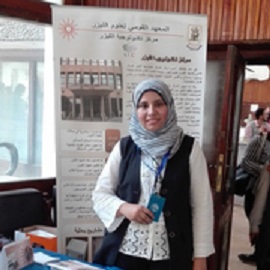
- Lipopolysaccharides
- Drug metabolites
- Synthetic pesticides
- Polluted environments
- Herbicides
- Contamination of food
- Xenobiotics
- Mycotoxin
- Non-alcoholic fatty liver disease
- Neurodegenerative diseases
- Diabetes
- Healthy diets
- Neurological disease
Interests in healthy diets have escalated which may prevent diabetes and neurodegenerative diseases such as Parkinson's and Alzheimer's disease. Food and nutrition guidelines for handling and processing of fresh fruit, bread and vegetables are essential and fresh produce may require cold preservation procedures to prevent minimal bacterial and fungi contamination of food. Bacterial breakdown products called lipopolysaccharides (LPS) are absorbed into the blood and increase the bad cholesterol and liver disease that is a major disease in the world and is called non-alcoholic fatty liver disease. LPS enters the brain to induce neurotoxicity with relevance to Alzheimer’s disease and neurological disease. Cold preservation procedures in the developing world such as fridges and freezers are required to prevent minimal bacterial and fungi contamination of food with proper food preservation to prevent diabetes and neurodegenerative diseases. In developing countries, in recent years the increase in foreign compounds such as xenobiotics (food, air, water) in polluted environments (drugs, drug metabolites, synthetic pesticides, and herbicides) may compete with bacteria/mycotoxin end product breakdown by the liver and both the xenobiotic compounds and end products may cause the liver and the brain to die as liver disease and diabetes in the developing world has increased to epidemic levels.

- Laser
- Optical diagnosis and therapy
- Medical spectroscopy
- Optical coherence tomography
- Mammography
- Confocal microscope
- Diffuse optical imaging
- Laser in surgery
- Laser in ophthalmology
- Laser in dermatology
- Laser in bioprinting
- Medical holography
- Adaptive optics
Laser is a magical solution for many healthcare problems and has been widely used in many medical diagnosis and therapeutic purposes. Moreover, it can be used in many surgeries without causing bleeding or pain for patients. It also became a very significant tool in a lot of medical imaging devices such as optical coherence tomography, mammography, diffuse imaging and confocal microscopy. Lasers play a very important role in ophthalmology, dermatology, oncology in both diagnostic and therapeutic procedures in an invasively and non-invasively way. In medicine, laser is preferable due to its safety, painless characteristic, and effective results.


